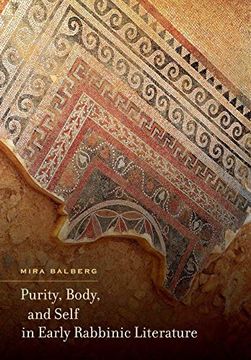Share
Purity, Body, and Self in Early Rabbinic Literature (s. Mark Taper Foundation Imprint in Jewish Studies) (in English)
Mira Balberg (Author)
·
University Of California Press
· Hardcover
Purity, Body, and Self in Early Rabbinic Literature (s. Mark Taper Foundation Imprint in Jewish Studies) (in English) - Mira Balberg
$ 108.57
$ 135.71
You save: $ 27.14
Choose the list to add your product or create one New List
✓ Product added successfully to the Wishlist.
Go to My WishlistsIt will be shipped from our warehouse between
Tuesday, June 11 and
Wednesday, June 12.
You will receive it anywhere in United States between 1 and 3 business days after shipment.
Synopsis "Purity, Body, and Self in Early Rabbinic Literature (s. Mark Taper Foundation Imprint in Jewish Studies) (in English)"
This book explores the ways in which the early rabbis reshaped biblical laws of ritual purity and impurity and argues that the rabbis’ new purity discourse generated a unique notion of a bodily self. Focusing on the Mishnah, a Palestinian legal codex compiled around the turn of the third century CE, Mira Balberg shows how the rabbis constructed the processes of contracting, conveying, and managing ritual impurity as ways of negotiating the relations between one’s self and one’s body and, more broadly, the relations between one’s self and one’s human and nonhuman environments. With their heightened emphasis on subjectivity, consciousness, and self-reflection, the rabbis reinvented biblically inherited language and practices in a way that resonated with central cultural concerns and intellectual commitments of the Greco-Roman Mediterranean world. Purity, Body, and Self in Early Rabbinic Literature adds a new dimension to the study of practices of self-making in antiquity by suggesting that not only philosophical exercises but also legal paradigms functioned as sites through which the self was shaped and improved.
- 0% (0)
- 0% (0)
- 0% (0)
- 0% (0)
- 0% (0)
All books in our catalog are Original.
The book is written in English.
The binding of this edition is Hardcover.
✓ Producto agregado correctamente al carro, Ir a Pagar.

